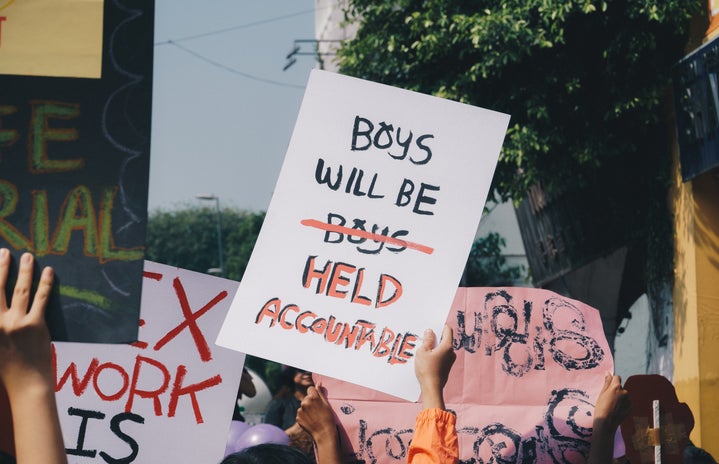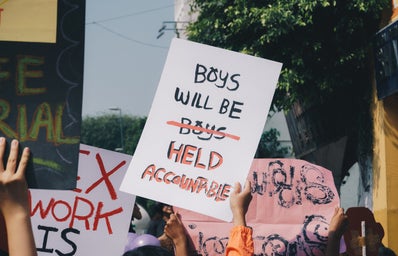TW: This article discusses sensitive topics, such as sexual assault, gender-based violence, and rape.
As you have most likely heard by now, a Metropolitan police officer in England was arrested this past week for the suspected kidnapping and subsequent murder of a 33-year-old woman, Sarah Everard. Sarah was reported missing after failing to return home from a friend’s house on Wednesday, March 3rd. She was last seen walking home alone at around 9:30 PM, wearing bright clothing. On March 10th, human remains were found, which were identified as Sarah’s on March 12th. The suspected officer, Wayne Couzens, was arrested on March 9th and charged with the kidnapping and murder of Sarah on March 12th. He is currently in custody. More information about this case can be found at the first link below.
For women and assigned female at birth (AFAB) people around the world, this is yet another example of the dangers associated with men. One question has been prominent across social media: Who can women trust to protect them now that the people meant for protection are part of the problem? How can women feel safe knowing they can still be targeted, despite doing everything right?
It is an extremely harsh reality for women around the world. With shocking statistics, such as a 1 in 5 rape rate in the United States, it feels impossible to navigate the world as a female-identifying person. Sarah Everard’s murder makes this even more clear. As young children, girls are taught to not go out past a certain time, not wear certain clothes, and inform people of where they are when they are out alone. What do we teach now, when Sarah followed all of these “rules”, only to be murdered by the people who have sworn to protect her?
Sarah’s case and the media coverage surrounding it brings to light another important aspect gender-based violence, rape, and femicide. Women speaking out about their similar experiences with harassment while walking home, as well as sexual assault, abuse, and rape, are met with criticism from men. In the comments section of many TikTok posts of women sharing their stories, you will find men repeating the same phrase, that it is “not all men.” Let’s talk about that.
The idea that “not all men” are bad people is a good idea, but it is flawed. I do agree; it is not all men. There are men who would never assault a woman, men who would never harass a woman, men who have done nothing wrong in their lives. The problem is that we do not know who those men are. We never will. Sarah did not know a police officer would kill her. Women around the world did not know that their family members, friends, people they trust, people who have sworn to protect them, would hurt them. Yet it happens. “Not all men,” but enough men to be cautious around all men. “Not all men,” but almost all women will be raped in their lifetime, statistically speaking.
As kids, we are taught to never take things from strangers. If a stranger offers us candy, to pet their dog, to take us home as a friend of our parents, we are told to say “no” and get away from the situation as quickly and safely as possible. We are told to kick and scream and fight these strangers if they attempt to touch us. Is every stranger trying to hurt us? Someone may legitimately want to make a child’s day a little bit better by giving them a piece of candy. Yet we would never take that risk because there is still the chance of harm. So why can women not feel the same way towards men as children are taught to feel about strangers?
If you, as a man, only feel outraged when a woman says she is scared of men, but not when you see a statistic showing that 1 in 5 women will be raped in their lifetime, you are part of the problem. I encourage you to direct your rage towards the men who have helped create these statistics. Raise awareness instead of shaming women for sharing their experiences and their fears. Be the change and the solution that creates a world in which women can walk home at night without fearing for their lives.
If you or a loved one has been assaulted/harassed (verbally, physically, sexually), stalked, raped, etc. remember that you are not alone. You are so strong and you are not defined by the people who have hurt you. You are loved and your emotions are valid.
National Sexual Assault Hotline: 1-800-656-4673
National Suicide Prevention Lifeline: 1-800-273-8255
Sources:


